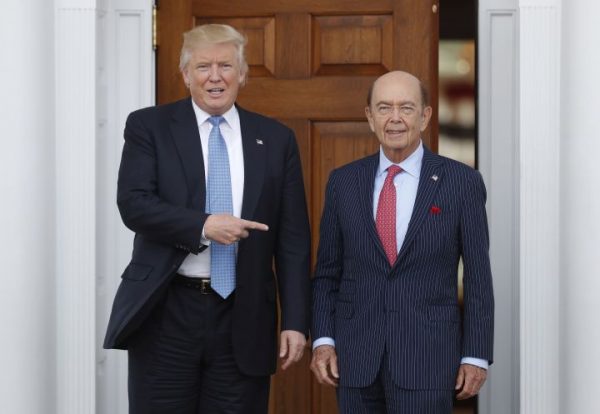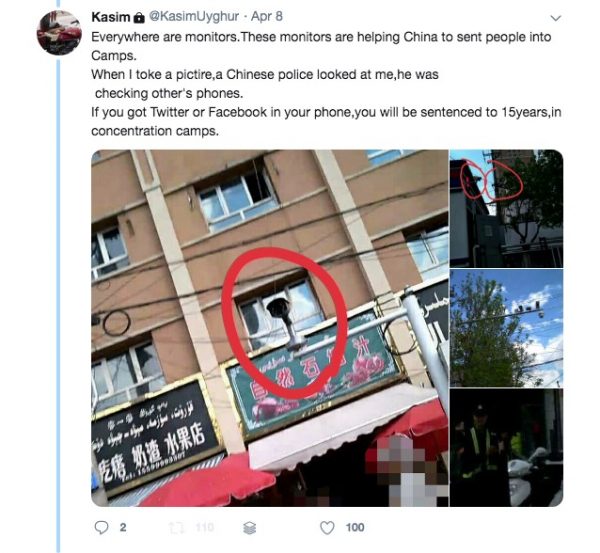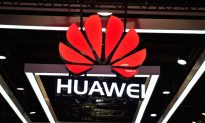Amber Alert Issued for 13-Year-Old Girl, Police Also Looking for Male Who May Have Kidnapped Her
WASHINGTON—The Trump administration on Oct. 7 placed 28 Chinese public security bureaus and companies—including video surveillance company Hikvision and seven other companies—on a U.S. trade blacklist over Beijing’s treatment of Uyghurs and other predominantly Muslim ethnic minorities.
Those added to the so-called “Entity List” include the Xinjiang Uyghur Autonomous Region People’s Government Public Security Bureau, 19 subordinate government agencies, and eight commercial firms, according to a U.S. Commerce Department filing.
The companies include some of China’s leading artificial intelligence firms such as SenseTime Group Ltd, and Megvii Technology Ltd, which is backed by Alibaba, as well as Hikvision, formally known as Hangzhou Hikvision Digital Technology Co. Ltd., Zhejiang Dahua Technology, IFLYTEK Co., Xiamen Meiya Pico Information Co., and Yixin Science and Technology Co.
Megvii filed for an IPO this summer of at least $500 million in Hong Kong, while SenseTime raised $620 million in a second round of funding in just two months last year and is one of the world’s most valuable unicorns in artificial intelligence.
While U.S. officials said the announcement was not tied to this week’s resumption of trade talks with China, the announcement sets the tone for a potentially more aggressive positioning by Washington in negotiations with Beijing to end a 15-month trade war between the world’s biggest economies.
Reuters reported on the planned additions earlier on Monday, before the Commerce Department made it official.
The department filing said the “entities have been implicated in human rights violations and abuses in the implementation of China’s campaign of repression, mass arbitrary detention, and high-technology surveillance against Uyghurs, Kazakhs, and other members of Muslim minority groups.”
“The U.S. Government and Department of Commerce cannot and will not tolerate the brutal suppression of ethnic minorities within China,” said Secretary of Commerce Wilbur Ross.
 President-elect Donald Trump (L) stands with investor Wilbur Ross after meeting at the Trump National Golf Club Bedminster clubhouse in Bedminster, N.J., on Nov. 20, 2016. (AP Photo/Carolyn Kaster)
President-elect Donald Trump (L) stands with investor Wilbur Ross after meeting at the Trump National Golf Club Bedminster clubhouse in Bedminster, N.J., on Nov. 20, 2016. (AP Photo/Carolyn Kaster)The list includes municipal and county public security bureaus and the Xinjiang Police College. In China, a public security bureau is a municipal office responsible for law enforcement, fire prevention, traffic control, immigration control and other matters affecting public security.
Being added to the “Entity List” bars companies or other entities from buying parts and components from U.S. companies without U.S. government approval.
The Commerce Department previously added Huawei Technologies and more than 100 affiliates to the Entity List. The Huawei listing hurt many of its U.S. suppliers that depended on the world’s largest telecommunications company for revenue and made it difficult for Huawei to sell new products.
Hikvision, with a market value of about $42 billion, calls itself the world’s largest video surveillance gear maker. Reuters reported in August Hikvision receives nearly 30 percent of its 50 billion yuan ($7 billion) in revenue from overseas.
A U.S. Hikvision spokesman said late on Monday the company “strongly opposes today’s decision by the U.S. government” and noted in January it retained a human rights expert and former U.S. ambassador to advise the company on human rights compliance.
Senator Marco Rubio, a Republican, praised the Commerce announcement.
“The Trump administration is sending a strong, clear message that the United States will hold the Chinese government and Communist Party and their enablers accountable for Beijing’s large-scale, systematic and egregious human rights abuses against Uyghurs and other religious ethnic minorities in Xinjiang,” Rubio said.
The Chinese embassy in Washington also did not immediately comment.
China faces growing international condemnation for setting up facilities that have been described as mass detention centers holding more than 1 million ethnic Uyghurs and other ethnic and religious minorities.
In April, a bipartisan group of U.S. lawmakers urged the move against Chinese companies it called “complicit in human rights abuses” and specifically cited Hikvision and Dahua.
U.S. Secretary of State Mike Pompeo said last week at the Vatican that “when the state rules absolutely, it demands its citizens worship government, not God. That’s why China has put more than one million Uyghur Muslims … in internment camps and is why it throws Christian pastors in jail.”
 Uyghur man Kasim shares of photo surveillance monitoring in Xinjiang. (Kasim/Twitter)
Uyghur man Kasim shares of photo surveillance monitoring in Xinjiang. (Kasim/Twitter)John Honovich, founder of surveillance video research company IPVM, said Hikvision and Dahua both use Intel Corp, Nvidia Corp, Ambarella Inc., Western Digital and Seagate Technology as suppliers and that the impact on the Chinese companies would be “devastating.” Shares in Ambarella fell 12 percent in after hours trading on the news.
In August, the Trump administration released an interim rule banning federal purchases of telecommunications equipment from five Chinese companies, including Huawei and Hikvision.
The ban was included in the National Defense Authorization Act (NDAA) passed last year, and restricted the use of federal money to purchase telecommunications equipment and services and video surveillance equipment from “covered” telecommunications companies, citing national security concerns that its products could be sabotaged by the Chinese regime to conduct espionage.
By David Shepardson
This article is from the Internet:Trump Administration Blacklists 28 China-Based Entities Over Human Rights Abuses in Xinjiang
Judge Tammy Kemp Explains Why She Hugged Amber Guyger, Gave Her a Bible

